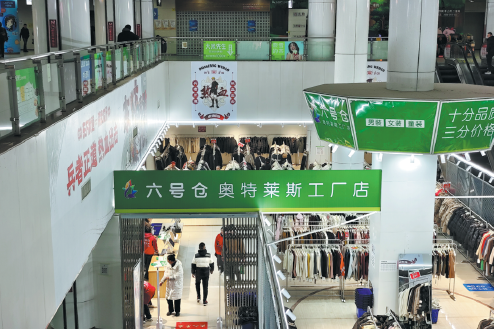An irresistible destination for global investors


As a key part of the country's efforts to promote innovation-driven growth, China has announced it will deepen capital market reform and opening-up policy to boost direct financing this year, which will further brighten investor confidence, experts said.
According to Yi Huiman, chairman of the China Securities Regulatory Commission, the top securities regulator, increasing the share of direct financing is of great significance for spurring innovation, given equity financing's feature of sharing both risks and benefits among shareholders.
In the 14th Five-Year Plan period, China will work to implement the registration-based system for stock issuance across the whole market, establish a regular delisting mechanism, and increase the proportion of direct financing, said a document released after the Fifth Plenary Session of the 19th CPC Central Committee.
For the CSRC, the top priority this year is going to be improvements to rules, in order to boost technological innovation. It said it will also strive to steadily promote high-level, two-way opening-up in markets, industries and products.
As the country steps up efforts to increase the share of direct financing, the growth of China's A-share market, which is already the world's second-largest stock market, will outpace the country's economic growth, said Wang from Vanguard.
"Further liberalization of the China market will be a win-win situation for both China and foreign investors," Wang said, adding that Chinese equity assets could offer both higher returns and diversification benefits for global investors.
The correlation between China and global markets will be positive but low in the long run as China's economic cycle has been largely driven by domestic demand, which provides critical diversification benefits to Vanguard's global portfolio, she said.
Experts, however, have also warned about downside risks to A shares this year amid protracted uncertainties. China's gradual normalization of monetary policy and a global economic recovery may weaken the advantages of Chinese equities, they said.
"Our base-case assumes a globally synchronized return to normalcy, and therefore we will likely tactically trim our overweighting in Chinese equities to gain more exposure to other parts of emerging markets and Japan," Paolini said.
Normalization in monetary policy, accompanied with tighter credit conditions, would mean the current valuation level may not be sustainable, though it will likely be offset by earnings growth driven by strength in consumption and exports, he said.
"But, overall, diversification plus the depth and the breadth of the equity and fixed-income markets would mean that global investors must look at China," said Thomas Fang, head of China global markets and QFII (qualified foreign institutional investors) representative with UBS, a multinational investment bank.
Fang said he expects global investors as a whole to continue increasing their weighting of Chinese equities and fixed-income assets in the coming two years, attracted by fast-growing industry leaders and higher yield prospects in a low-return world.



































